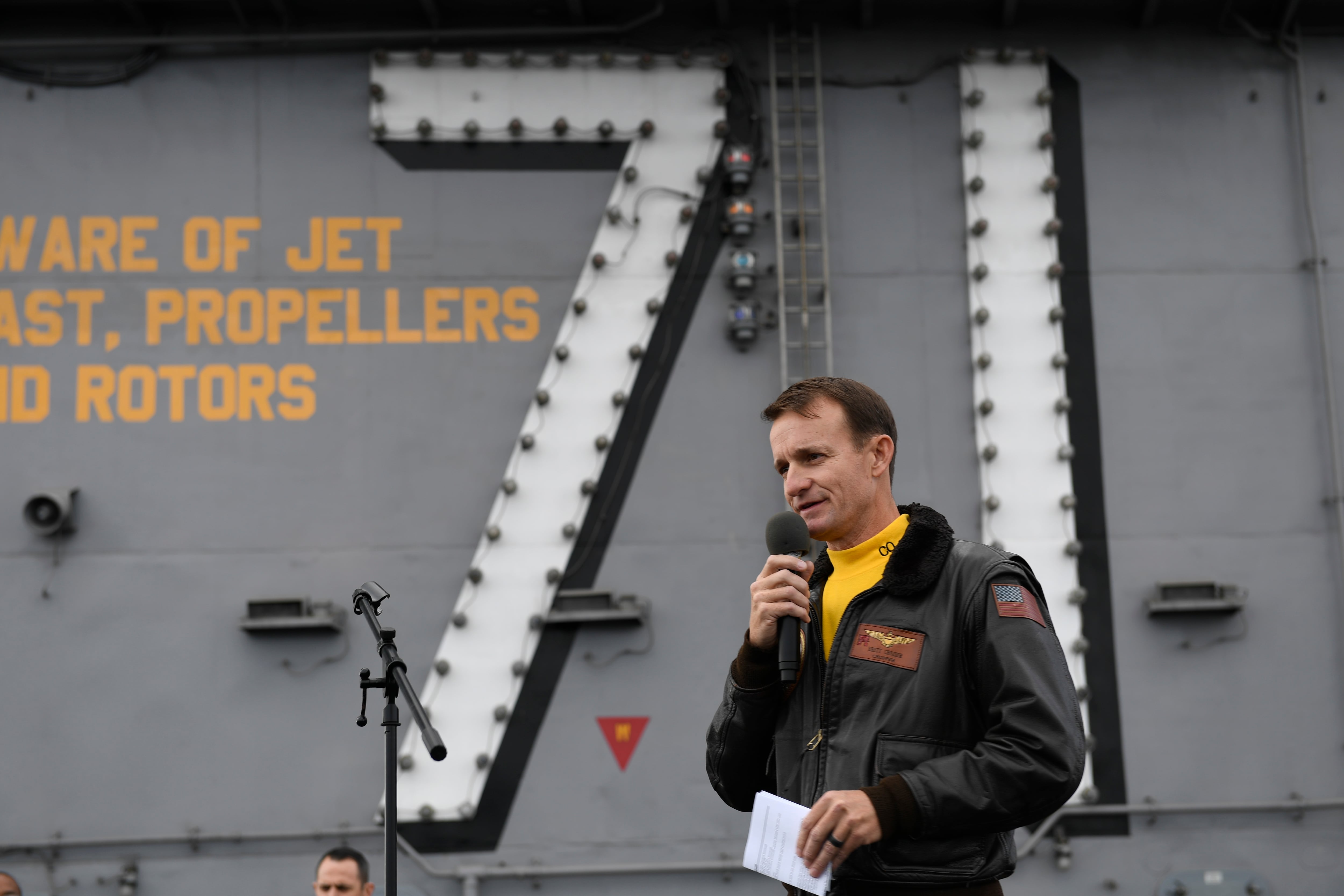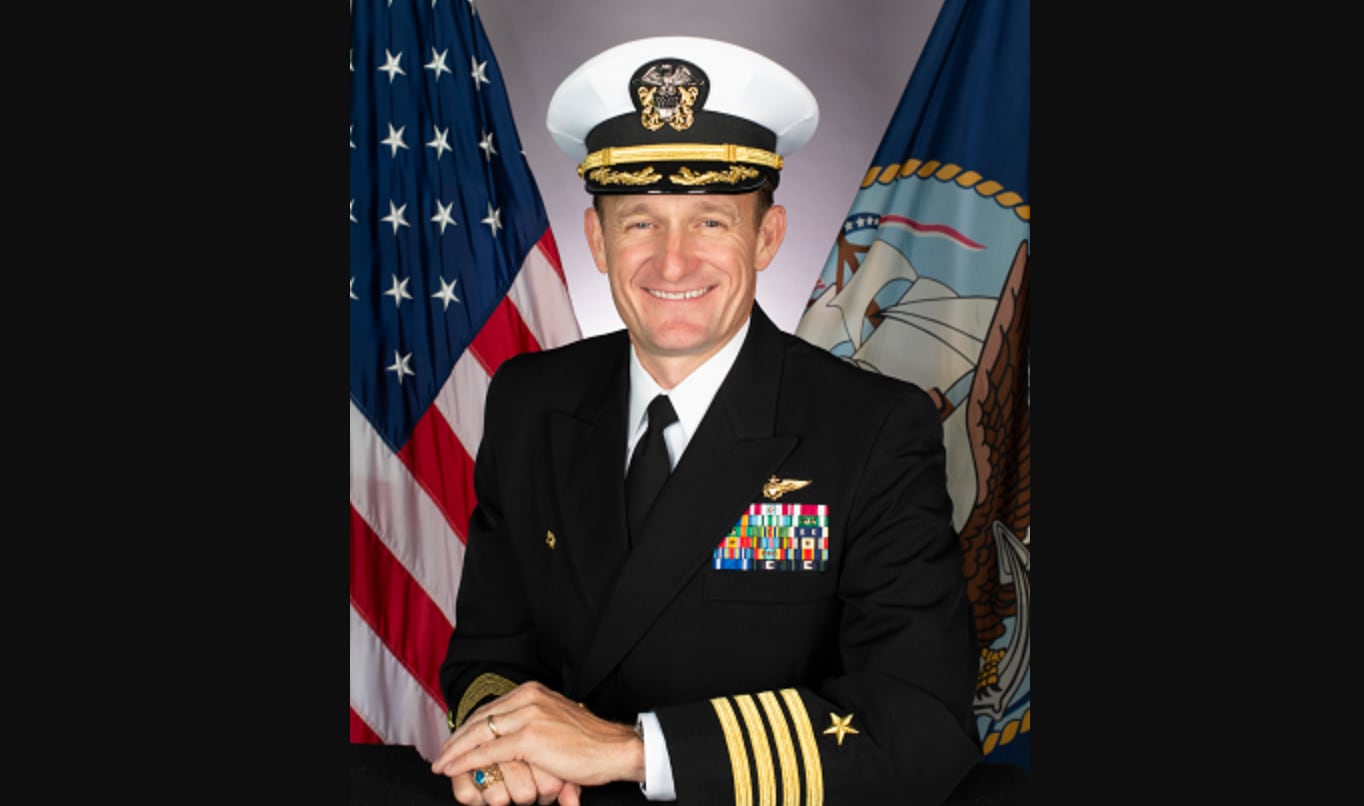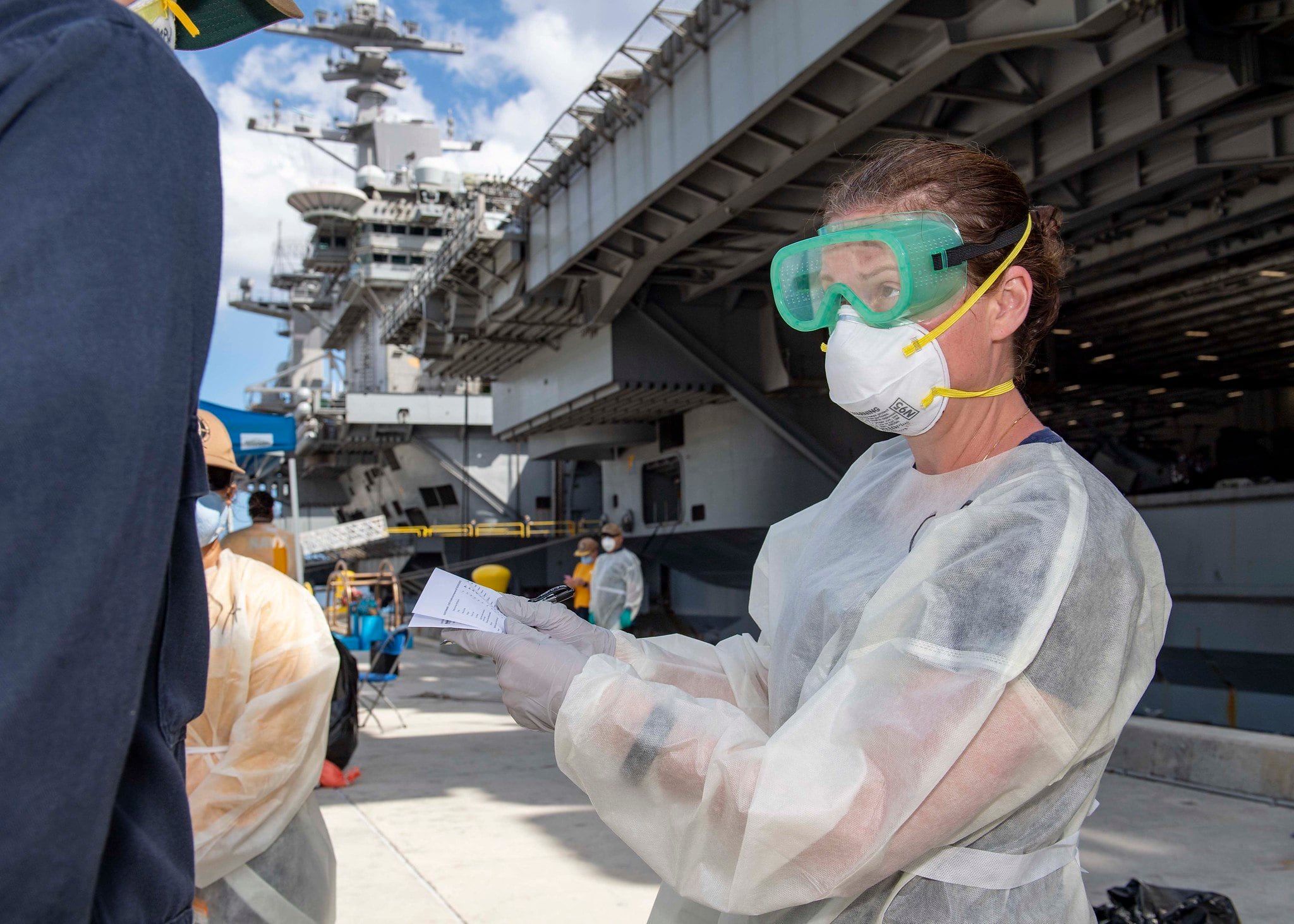The Navy will not reinstate Capt. Brett Crozier as commanding officer of the aircraft carrier Theodore Roosevelt, Chief of Naval Operations Adm. Mike Gilday told reporters Friday.
Crozier was relieved April 2, several days after an email and letter he sent up the chain, pleading for help in more quickly responding to an COVID-19 outbreak aboard the ship, was leaked to the media.
That leak led Acting Navy Secretary Thomas Modly to can Crozier. Modly himself soon resigned after a recording leaked of him trashing the captain to the TR’s crew.
Later in April, reports emerged that Gilday was open to giving Crozier back his job at the helm of the “Big Stick.”
But a deeper investigation was ordered by the acting Navy Secretary James McPherson, who succeeded Modly.
RELATED

That investigation, released Friday, faulted Crozier for how he responded to the outbreak onboard his ship and led Gilday to believe Crozier’s initial firing was justified.
“Had I known then what I know today … if Capt. Crozier was still in command today, I would have relieved him,” Gilday said at a Pentagon press conference.
While “the email and the leak were the genesis of all of this,” Gilday said, “this isn’t about the email and it’s not about the leak.”
The investigation Gilday has endorsed will also delay the two-star promotion Rear Adm. Stuart Baker, the carrier strike group commander.
“In reviewing both Adm. Baker and Capt. Crozier’s actions, they did not do enough, soon enough, to fulfill their primary obligations and they did not effectively carry out our guidelines,” Gilday said.
Navy Secretary Kenneth Braithwaite, who was sworn in May 29, acknowledged that “a rush to judgement became part of the equation” in the Crozier case, which played out in the chaotic onset of the virus’ spread in the U.S. military and America this spring, a series of events that included Modly’s dissing of Crozier and viral videos of the carrier’s crew cheering Crozier as he left the ship.
“This truly illustrates the importance of a thorough investigation,” Braithwaite said at the press conference. “If we had done the due diligence from the beginning, we would’ve come up with the total facts that led us to make the right conclusion much earlier.”
The Navy’s new investigation “put enough doubt in my mind,” about Crozier’s ability to command, Gilday said.
RELATED

Crozier’s leaked letter, first obtained by the San Francisco Chronicle, warned that “Sailors do not need to die.”
“If we do not act now, we are failing to properly take care of our most trusted asset — our Sailors,” he wrote in his plea for help.
But according to Gilday, the wheels were already in motion to secure beds for TR sailors in Guam, and Crozier was slow in getting his men and women off the ship.
“The email and letter sent by Capt. Crozier were unnecessary,” Gilday said. “Actions were already underway…those wheels were well in motion.”
In the 72 hours before Crozier sent his now-infamous email, he did not plan for or egress sailors off the ship and onto Naval Base Guam fast enough, the investigating officer, Adm. Robert Burke, wrote.
Crozier was too focused on getting his sailors into hotels that were not yet available, instead of sending them off the ship and into base facilities like gyms which provided each sailor 72 square-feet of distance, according to the investigation and Gilday.
“If there were obstacles to expeditious egress, he did not aggressively seek solutions,” Burke wrote.
The investigation also faults Baker, the strike group commander, for not getting sailors off the ship faster.
“I was not impressed by the slow egress off the ship, the lack of a plan to do so,” Gilday added.
Burke wrote that Crozier did not intend for his email and letter to be released to the media.
“Importantly, his email and letter were sent hours after a decision had been made by the Government of Guam to open hotels for CAPT Crozier’s crew,” the investigation states. “His email neither accelerated that decision nor had any positive impact on the outcome.”
Crozier failed to brief the carrier strike group CO, Baker, who was on the TR with him, nor did he include the head of the Japan-based 7th Fleet in the correspondence.
Burke also found that Crozier’s performance “during this unprecedented crisis” fell short in other ways.
During the ship’s transit to Guam, Crozier did not ensure physical distancing when possible on the carrier.
Crozier also failed to brief the chain of command during daily video calls about a need for additional support and “exercised questionable judgement when he released Sailors from aft quarantine onboard the ship,” Burke wrote.
RELATED

“This allowed for increased spread of the virus,” he wrote. “He placed comfort of the crew ahead of safety of the crew at a time when he should have been focused on doing everything he could to slow transmission of COVID-19 by moving Sailors ashore.”
Gilday also criticized the TR’s lack of social distancing when the crew gathered to cheer for Crozier as he left the ship.
In a statement Friday afternoon, the chairman of the House Armed Services Committee, Rep. Adam Smith, said the committee will begin its own investigation into the TR’s COVID-19 outbreak.
“Everyone up and down the chain of command had a role to play in the inadequate response—including then Acting Secretary of the Navy Modly,” the Washington Democrat said. “The Department’s civilian leadership portrayed Captain Crozier’s decision-making aboard the Roosevelt as the critical weakness in the Navy’s response, but the truth is that civilian leadership was also to blame.”
Also Friday, Democratic Sens. Richard Blumenthal and Chris Van Hollen questioned the decision to not reinstate Crozier.
“When the COVID-19 pandemic was beginning to take hold, there was no formal training in place and the military was responding — like the rest of the world — without clearly defined safety precautions,” the senators said. “The Navy’s decision now seems to apply a retroactive standard and after-the-fact procedures and practices to justify Captain Crozier’s firing.”
Gilday and Braithwaite both said they hope the Navy and the TR’s crew can move on from here.
The 7th Fleet commander, Vice Adm. William Merz, went to Guam and explained these deeper findings to the TR’s crew and answered questions “until they ran out of questions to ask,” Gilday said.
They explained Crozier’s failure to place safety over comfort, and “It was an eye opener for the crew,” Gilday said.

The Navy still doesn’t know who patient zero was aboard the TR, but contrary to media reports, the vector is not believed to have been supply planes flying on and off the carrier, Gilday said.
Burke recommended in his investigation that administrative action also be taken against the carrier’s air wing commander and the TR’s medical officer, decisions that U.S. Pacific Fleet will ultimately adjudicate.
Much has been made of the TR’s port visit to Da Nang, Vietnam, in early March, and whether that visit brought the novel coronavirus onboard.
Gilday said the visit was approved by Adm. Phil Davidson, the head of U.S. Indo-Pacific Command, and was based on U.S. Centers for Disease Control and Prevention guidance at the time.
While 39 sailors had stayed in a hotel that later reported two possible COVID-19 cases, none of those 39 tested positive for the virus, Gilday said.
Crozier’s firing took a turn toward the political days after his relief when President Donald Trump told reporters that the CO writing the letter “was terrible.”
“I mean, this isn’t a class on literature,” Trump told reporters on April 4. “This is a captain of a massive ship that’s nuclear powered, and he shouldn’t be talking that way in a letter. He could call and ask and suggest.”
Geoff is the managing editor of Military Times, but he still loves writing stories. He covered Iraq and Afghanistan extensively and was a reporter at the Chicago Tribune. He welcomes any and all kinds of tips at geoffz@militarytimes.com.





